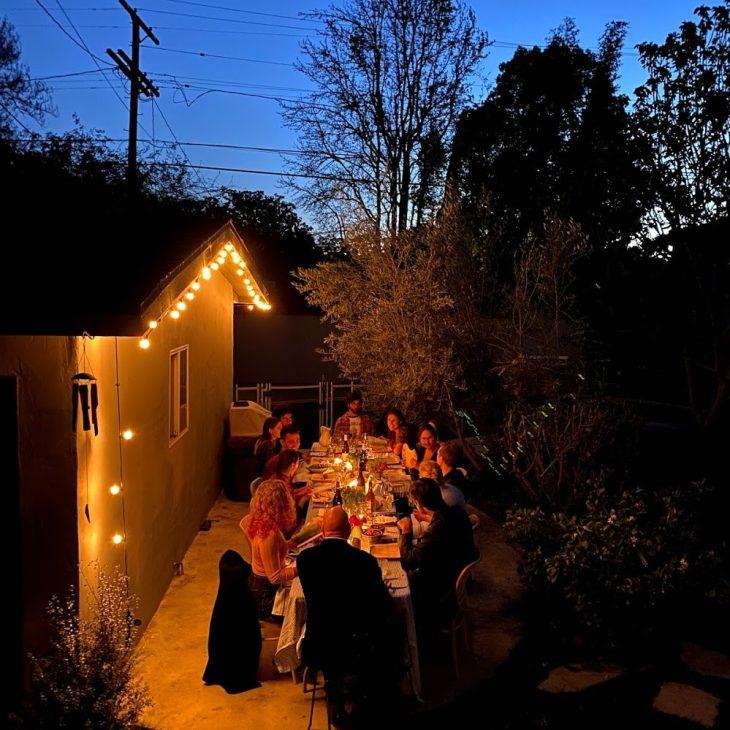Why a Former Tech Writer Shared Her Religious Journey Online
January 20, 2022

When Nellie Bowles started covering the technology beat at The New York Times a few years ago, she looked beyond the shiny corporate campuses, the latest gadgets and the flow of venture capital into Silicon Valley. Tackling tech as a culture beat, she centered one of her stories at the Esalen Institute, a spiritual retreat center and “storied hippie hotel” high on a cliff above the Pacific Ocean in Big Sur, California.
“There’s a lot of spirituality stuff going on in the tech community and Silicon Valley, and definitely a lot of curiosity about it,” Bowles said in a recent interview.
In her 2017 story, “Where Silicon Valley is Going to Get in Touch with its Soul,” Bowles noted that a former Google product manager had taken the helm and was attracting tech titans who “felt anxious about what they were building and needed a place to think through it.”
The retreat center director told Bowles, “The CEOs, inside they’re hurting. They can’t sleep at night.”
Bowles left The Times last year after four years covering Silicon Valley culture, its obsessions, its dangers, its inequities, and its fascination with spirituality. But she’s continued to find innovative ways to write about technology and religion.
Locked down by the pandemic in 2020, Bowles began writing about her conversion to Judaism, a process of study, cultural immersion and reflection that culminated a few months ago. Her Substack newsletter, “Chosen by Choice,” featured weekly essays that in time attracted more than 3,000 readers and several hundred paid subscribers.
“It was really cool. People don’t talk about converting to Judaism that much. It’s not a proselytizing religion. It’s considered impolite,” Bowles said. “But it results in people not talking about this really interesting thing. There a lot of people with really interesting stories.”
The readership looks small compared to Bowles’ audience at The Times, but in the tiny world of Jewish converts, it made a splash. “Cho by Cho,” as she nicknamed the effort, started as a “public challenge to myself” to help her process what she was studying. In time — through lively comment threads, guest contributors, “Seinfeld” clips and her own candid, engaging and humorous writing (she once compared Shabbat to a Goop-like technology detox) – Bowles created something that people long for in online spaces: a sense of community.
Her newsletter attracted readers born into Judaism as well as converts, and she used the space to highlight Jewish charities and online resources like Base, a network of rabbis around the country who open their homes to visitors on Shabbat. Bowles has written, among other topics, about Jewish pride (“Why I Want a Giant Lawn Menorah”), her beloved grandmother’s death, and the importance of her mom’s Christian faith. Bowles grew up in San Francisco influenced by family traditions in the Greek Orthodox and Episcopal churches.
“My mom is devout, she goes to church definitely every week, often more,” Bowles said. “One of the things about converting was weaving her into my Jewish life and having her understand it and not have it feel foreign. And it’s not like I’m leaving my family. We’ve had Shabbat at her house, and lit the candles, so she sees it … but also have her not feel like I’m rejecting our home and her life. I can go to church with her and it’s okay.”
Sharing one’s religious journey online is a vulnerable act, and I asked Bowles how she deals with antisemitism or hatred in online spaces. “Ignore the haters,” she said. “You just don’t engage.” She said she’s most likely to encounter anti-Zionist rhetoric, particularly from politically progressive friends who see religion as somewhat backward and equate Judaism with political support for Israel. “It’s very hard to be a moderate Jewish person. Most Jewish people are basically Zionists” – meaning they support the nation of Israel’s right to exist, although often vehemently debate its politics. “It’s not a fringe belief.”
Now that she’s officially Jewish, Bowles has paused “Chosen by Choice” for now, although she dreams of turning it into a coffee table book filled with guest essays and portraits of converts. She’s now finishing up a book of essays on American culture and writing a weekly columns for Common Sense, a popular politics newsletter created by her wife, the writer Bari Weiss.
I asked if she had advice for young people navigating religious spaces online.
“Get offline,” Bowles said. “The thing about Judaism is you can’t learn it online. It’s community. It should be learned and enjoyed in person.”
For thousands of readers and hundreds of Jewish converts isolated by the pandemic, however, Bowles’ “Chosen by Choice” newsletter managed to create a needed online space to connect, learn and share stories.
Share
Related Articles
Higher Education
American Civic Life
Higher Education



